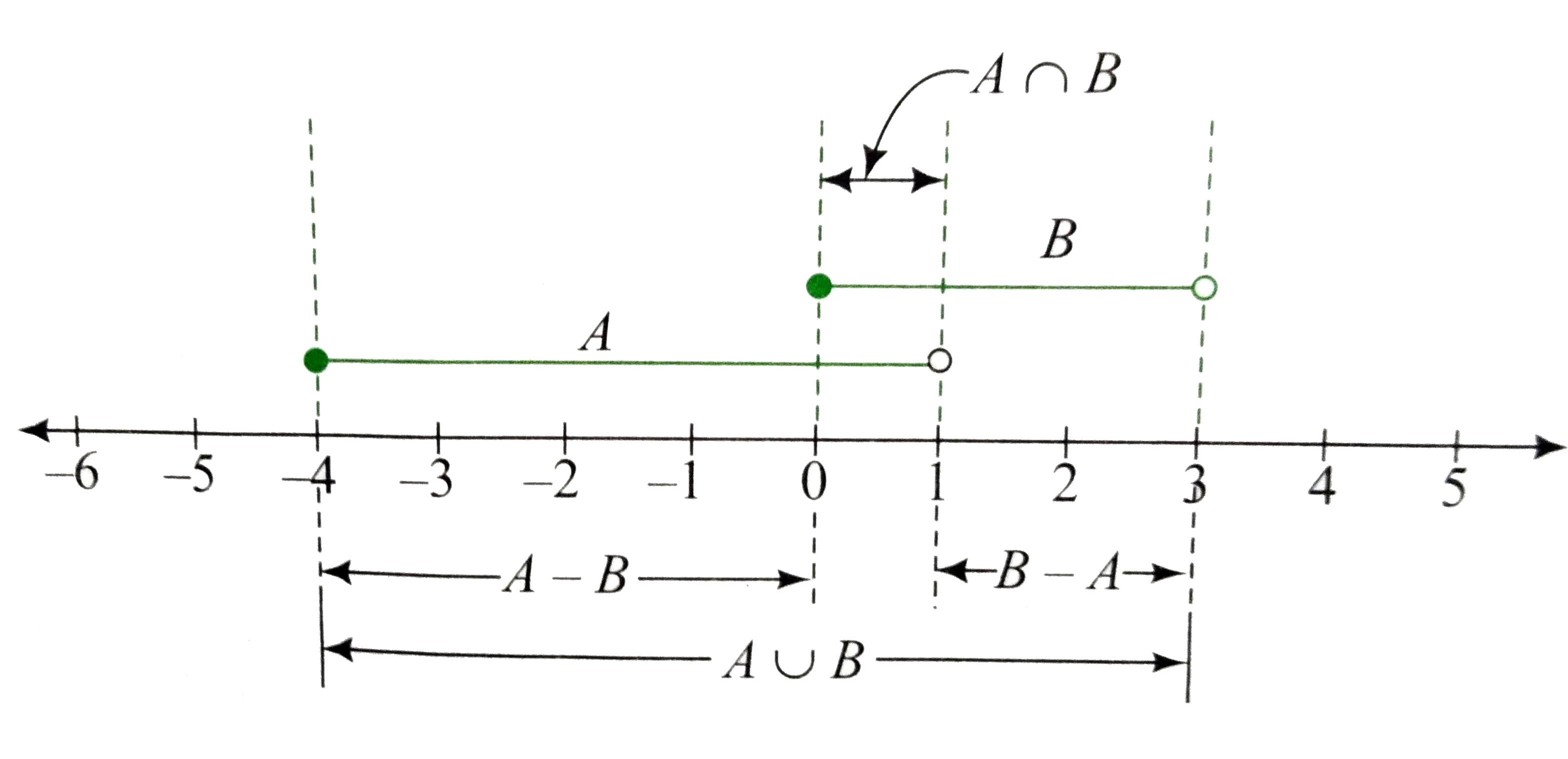If sets A=[−4,1]andB=[0,3), then find the following sets:
(a) A∩B (b) A∪B (c ) A−B
(d) B−A (e ) (A∪B)' (f) (A∩B)'
Text Solution
The correct Answer is:(a) [0,1) (b) [−4,3) (c ) [−4,0) (d) [1,3) (e ) (−∞,−4)∪[3,∞) (f) (−∞,0)∪[1,∞)

(a) A∩B=[0,1)
(b) A∪B=[−4,3)
(c ) A−B=[−4,0)
(d) B−A=[1,3)
(e ) (A∪B)'=(−∞,−4)∪[3,∞)
(f) (A∩B)'=(−∞,0)∪[1,∞)
|
Topper's Solved these Questions
- RELATIONS AND FUNCTIONSBOOK - CENGAGECHAPTER - RELATIONS AND FUNCTIONSEXERCISE - Exercise 1.2
5 Videos
- RELATIONS AND FUNCTIONSBOOK - CENGAGECHAPTER - RELATIONS AND FUNCTIONSEXERCISE - Exercise 1.3
9 Videos
- RELATIONS AND FUNCTIONSBOOK - CENGAGECHAPTER - RELATIONS AND FUNCTIONSEXERCISE - Examples
196 Videos
- Quadratic Equations, Inequalities, Modulus and LogarithmsBOOK - CENGAGECHAPTER - Quadratic Equations, Inequalities, Modulus and LogarithmsEXERCISE - Question Bank
28 Videos
- SCALER TRIPLE PRODUCTS BOOK - CENGAGECHAPTER - SCALER TRIPLE PRODUCTS EXERCISE - DPP 2.3
11 Videos
Similar Questions
Knowledge Check
For sets (A∪B)∪(A∩B) equals
AA'BB'CADNone of theseIf A and B are two sets, then (A ∪ B')' ∩ (A' ∪ B)' is
Anull setBuniversal setCADBFor two sets AandB,A∩(A∪B) is equal to-
AABBCϕD(A∪B)
